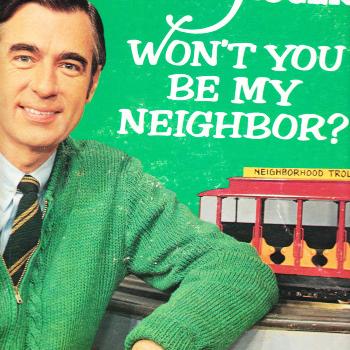A Google news search of domestic print publications from the last six months alone would undoubtedly yield a sharp increase in incidences of the phrase "religious freedom," as compared to a year ago. This foundational American principle has rightly garnered much attention as it relates to a host of conscience issues—among them contraception, the definition of marriage, and employment practices. Increasingly we see government seeking to exert its will on areas of life about which Scripture has much to say.
These are troubling developments, to be sure, but they have fostered a healthy discourse among many Christians that has spilled into the public square—a conversation that has served to remind many Americans of the preciousness of our "first freedom" and all that is at stake when it is undermined.
Religious freedom is inherently tied to religious persecution. Where this freedom is infringed upon, persecution in its myriad forms swiftly follows.
To start, there is what some call "soft" persecution. While not life threatening, it is insidious, dangerous, and ought to trigger the internal alarm of the faithful, for such persecution typically foreshadows something far more ominous. Which begs the question: Is this where the American church finds itself?
Then there is the most severe manifestation: the literal imprisonment, intimidation, beating, and even martyrdom of men and women of faith for no other reason than that they are followers of Jesus. In some cases, such persecution is state-sponsored. Churches are shuttered, believers arrested. In others, it is communal and essentially government-sanctioned; the majority simply crushes the minority and a culture of impunity prevails.
The church is often called "the body" of Christ. The apostle Paul tells us in 1 Corinthians 12:26 that "when one part of the body suffers, the whole body suffers." A mere glance around the world quickly reveals that the proverbial "body" is suffering.
Consider some of the following excerpts from mainstream media outlets over the last few weeks:
- May 12, Washington Post: "Coptic Christians, whose forefathers lived in Egypt before the arrival of Islam, had hoped that the 2011 uprising that ousted authoritarian President Hosni Mubarak would give them equal rights. Instead, things have worsened. Egypt's Christians have been the victims of threats and dramatic violence, and they fear the ascendance of political Islam."
- May 17, Christian Science Monitor: "More disturbing has been a recent surge of harassment and closures of Indonesian churches. Earlier today, congregants of Filadelfia Church in Bekasi, a poor Jakarta suburb, had rocks and sewage water thrown at them as they tried to enter to church to celebrate the ascension of Jesus Christ."
- May 28, Wall Street Journal: "At least 40 underground Chinese bishops are missing, deprived of their freedom, under surveillance or in hiding, according to an October report by the U.S. Congressional Executive Commission on China . . . The authorities continue to persecute the Catholics of Wenzhou—and other unapproved Christians across the country-- out of fear that allowing such groups to exist independent of state control will undermine one-party rule."
- May 31, Wall Street Journal: "A consistent portrait emerges of North Korea's six giant kawn-li-so, or 'total control camps,' where people are sent, often without trial, for offenses including defacing a picture of one of North Korea's leaders, attending a church service or leaving the country without permission."
- June 3, Radio Netherlands: "A suicide bomber who tried to drive an explosives-packed car into a church in northern Nigeria on Sunday killed at least 15 people, including himself, and injured 40, officials said."
It's been said that more Christians were martyred for their faith in the 20th century alone than in the previous nineteen centuries combined. The 21st century too is off to an inauspicious start. And there is no indication that things will soon improve. The full implications of the "Arab Spring" (or "Arab Winter" may more aptly describe the resulting violence, instability, and uncertainty facing ancient Christian communities throughout the Middle East) are not fully known, but the early signs for Christians are not promising. The Chinese Communist Party, already gripped by paranoia in the face of a coming leadership change later this year, is tightening its grip. Similarly, with the passing of North Korea's "Dear Leader" Kim Jong-Il, and the ascension of his son, Kim Jong Un, the regime is reportedly imprisoning and even killing up to three generations of family left behind by attempted escapees regardless of whether they are successful or not.




